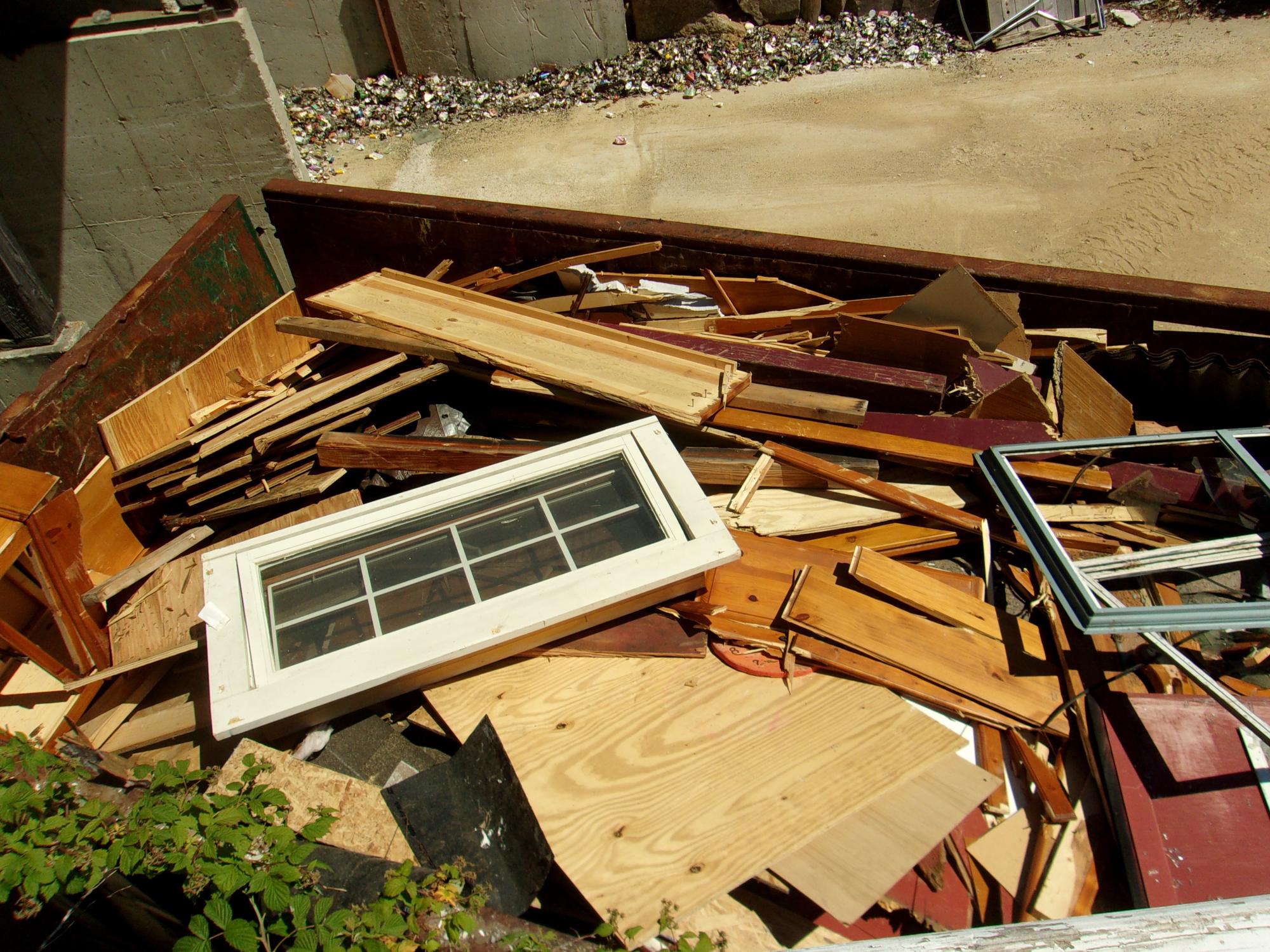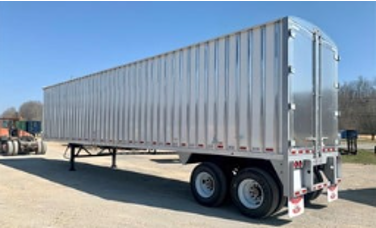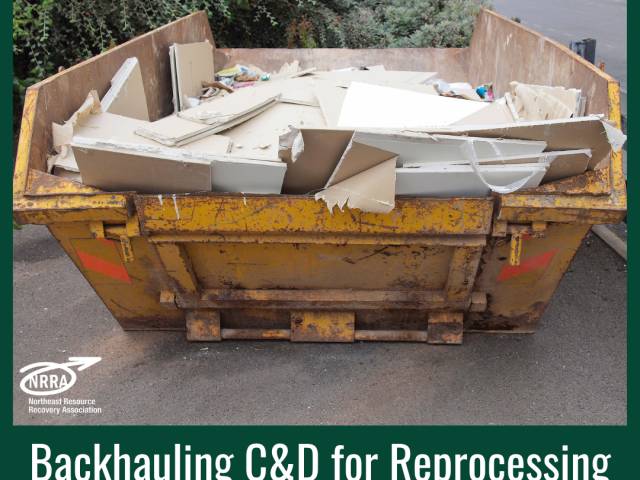Backhauling C&D from NH North Country - Feasibility Study
Backhauling C&D from NH North Country to Reprocessing or Reuse Facility
An NRRA Feasibility Study
In 2023 and 2024, the recycling nonprofit Northeast Resource Recovery Association (NRRA) engaged local solid waste management stakeholders, including transfer station operators and town leaders, to better understand the construction and demolition debris (C&D) diversion and reuse landscape in the North Country of New Hampshire (NH). The goal was to identify cost-effective and environmentally sound recycling and reprocessing options for C&D for the North Country.
I. Project Description:
The goal of this feasibility study is to determine if there is a cost-effective and environmentally sound way to backhaul C&D from the North Country to C&D recycling and reprocessing companies. For example, at Resource Waste Services, Inc. in Epping, NH, between 80 to 85 percent of the C&D is reprocessed for recycling and reuse with only 15 to 20 percent disposed of as waste. Backhauling would entail using containers and trailers that bring material to be landfilled north to bring C&D back to other locations for processing and therefore not return empty.
For this study, the North Country is defined as the communities in Coös County plus ten communities in northern Grafton County for 30 communities with a total population of 46,478.
 North Country NH municipalities landfill most of their C&D, delivering C&D with town trucks or through local haulers to either the Androscoggin Valley Regional Refuse Disposal District (AVRRDD) Landfill in Success, NH, or Casella’s North Country Environmental Services (NCES) landfill in Bethlehem, NH.
North Country NH municipalities landfill most of their C&D, delivering C&D with town trucks or through local haulers to either the Androscoggin Valley Regional Refuse Disposal District (AVRRDD) Landfill in Success, NH, or Casella’s North Country Environmental Services (NCES) landfill in Bethlehem, NH.
The average cost to dispose and haul C&D in NH is $150 to $170 per ton compared to municipal solid waste (MSW) at $110 to $130 per ton. There are no nearby recycling or reprocessing options for mixed C&D, although some towns can send separated wood to AVRRDD to use as landfill alternative daily cover at a lesser cost.
II. Potential Solutions:
- Consolidate C&D in one or two locations in the North Country to provide hauling or processing companies with enough tonnage to consider backhauling to ReSource Waste in Epping, NH or other facilities in Vermont or Maine.
- NRRA could identify haulers that might be able to provide such backhauling services.
III. Criteria to Evaluate Solutions:
To determine the feasibility of backhauling C&D from northern NH to a C&D recycling facility, NRRA staff reached out to eight haulers. The following information was discussed with them:
- Vendor or processor’s service area
- What happens to C&D at their facility or at the processor
- Backhaul interest to C&D processor and associated costs
The ability and willingness of a hauler to provide backhaul services, combined with the cost-effectiveness of such services for North Country municipalities, were key criteria for evaluating the feasibility of backhauling C&D.
IV. Solutions:
One of the eight haulers contacted is willing to do a trial backhaul load of C&D from a North Country Transfer Station or consolidation point to ReSource Waste Services in Epping, NH.
 This hauler would use a 120-cubic yard live floor trailer (unlike a dump trailer, this trailer has a floor with moving slats to “walk out” C&D) that can hold 22 to 26 tons per load. The estimated disposal fees would be $2,909 plus an estimated haul rate of $825 to $1,025 with no additional fuel surcharge. As shown in the Littleton Transfer Station C&D Backhaul Trial Run Example, this option is around 4 to 5 percent more expensive, but most of the material would be recycled instead of landfilled.
This hauler would use a 120-cubic yard live floor trailer (unlike a dump trailer, this trailer has a floor with moving slats to “walk out” C&D) that can hold 22 to 26 tons per load. The estimated disposal fees would be $2,909 plus an estimated haul rate of $825 to $1,025 with no additional fuel surcharge. As shown in the Littleton Transfer Station C&D Backhaul Trial Run Example, this option is around 4 to 5 percent more expensive, but most of the material would be recycled instead of landfilled.
Backhauling was not feasible for the remaining seven haulers due to the following:
- State Regulations: ME and VT processors cannot accept C&D from NH municipalities.
- Time Availability: Most disposal companies that currently haul MSW or C&D north do not have the time to pick up a full trailer of C&D and bring it to a southern NH processor.
- Material Available: The preferred mode of pickup of C&D is a 100 or 120-cubic yard trailer of 3 to 4 loads per day. There is not enough tonnage at one site or at a consolidation site (municipalities would deliver C&D to one transfer station) in the North Country to accomplish this.
V. Conclusion:
A slightly more expensive alternative to landfilling C&D exists for North Country communities if they are willing and able to collect 22 to 26 tons of C&D at their individual transfer stations (like Littleton, NH) or deliver C&D to one or two consolidation points in the North Country region (like Littleton, NH) until 22 to 26 tons is collected.
Littleton Transfer Station C&D Backhaul Trial Run Example
A trial load of C&D out of Littleton, NH would cost an estimated $160 per ton compared to landfilling at $152 per ton. This means that recycling C&D is approximately 5% more expensive than landfilling it. Littleton currently ships C&D in a pre-crusher with compactor box and an open top container. For this example, C&D to be reprocessed would not include bulky waste items such as furniture or mattresses.

Example of C&D in an open top container.
OPTION: | TONS: | HAUL RATE: | TIPPING RATE: | TOTAL COST: | COST PER TON: |
Backhaul | 22 | $925 | $121 / Ton | $3,587 | $163.05 |
Landfill | 7 | $521 | $78 / Ton | $1,067 | $152.43 |
While the cost to process and recycle is currently more expensive, it is close enough for Littleton to consider a possible viable option for the future. Littleton does not currently have the capacity to store 22 to 26 tons of material on site and to load that amount into a container. For Littleton to be able to get the required capacity of storage, the facility would need to rearrange their current C&D bunker. They may also need to adjust their solid waste permit to be able to store that quantity on site.
To increase the economy of scale, Littleton could become a consolidation point for other North Country communities that want to recycle their C&D along with Littleton.
This project has been funded in part by the United States Environmental Protection Agency under assistance agreement 00A01372 to Northeast Resource Recovery Association. The contents of this document do not necessarily reflect the views and policies of the EPA.
Northeast Resource Recovery Association complies with applicable Federal civil rights laws and does not discriminate on the basis of race, color, national origin, age, disability, or sex (including pregnancy, sexual orientation, and gender identity).
